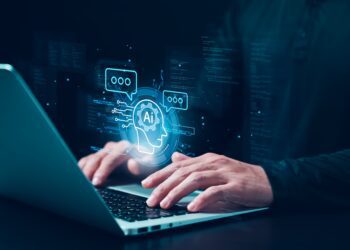The World Economic Forum and Deloitte explore what is driving the post-COVID-19 recovery.
The Fourth Industrial Revolution (4IR) has involved a coming together of the digital, biological and physical worlds punctuated by new technologies the likes of artificial intelligence, cloud computing, robotics, 3D printing and the Internet of Things.
It is unsurprising, given its immense scope if nothing else, that the technology driving this revolution (“4IR tech”) is presenting opportunities and challenges that can only be properly tackled with a forward-looking and innovative approach to governance.
As we have already seen, efforts to recover from COVID-19 have triggered a tsunami of innovations in work, collaboration, distribution and service delivery. They have, indeed, fundamentally shifted customer behavior on multiple levels.
And so, the question is: how can we harness and shape the disruption 4IR tech engenders in such a way that simultaneously promotes global economic recovery, expands human opportunity, and increases cooperation and security?
Regulatory agility remains key
Long before the pandemic, gaps existed in the way technology was regulated, and with them came the usual accompanying risks of fostering an environment of potential misuse or unintended consequences.
Issues of privacy, liability and cross-border regulatory discrepancies were among them, as was the potential for misuse by bad actors.
New models of governance were, and still are, required to fill these gaps and to enhance the benefits of 4IR technologies. It comes as no surprises that regulatory agility has become increasingly important in the COVID-19 era, as governments ease restrictions to accelerate the development of new treatments and technologies.
Our research hones in on several emerging and leading frameworks that have the potential to provide effective technology governance of emerging technologies.
Some 70 governance frameworks are highlighted in the joint World Economic Forum and Deloitte 2021 Global Technology Governance report, which summarises common governance challenges and frameworks across five 4IR technologies. Artificial Intelligence (AI), mobility (including autonomous vehicles), blockchain, drones and the Internet of Things (IoT). Here are five of the most innovative examples taken from the whole:
AI in Canada
In 2019, Canada issued a directive on automated decision making, aimed at guiding the Government of Canada in using “any technology that either assists or replaces the judgement of human decision-makers.” It includes requirements such as algorithmic impact assessments, providing notice before and explanations after decisions, recourse options and reporting on the effectiveness and efficiency of systems. The directive is intended to be updated in tandem with the evolution of technologies and their different uses.
Blockchain in Bermuda
The Bermudan government is aiming to make the country a hub for blockchain and digital assets. Recent activity includes the test-piloting of a digital stimulus token — a stablecoin — to evaluate the viability of a digital token for food and other necessary goods and services. It is designed as a way to facilitate assistance to specific sectors of the economy. In 2019, the government allowed for the payment of taxes in USD Coin (a stablecoin) and launched the development of a blockchain-based digital ID platform. The government also amended its banking laws to allow for the creation of a category of banks that serve blockchain and cryptocurrency companies.
IoT in Finland
Finland has launched a cybersecurity labelling system to inform consumers about which IoT products meet digital safety standards. The move is aimed at promoting secure-by-default IoT product lines and spreading awareness of the dangers associated with increased connectivity. The labelling initiative will see a stamp placed on every smart device that adheres to Finland’s cybersecurity safety guidelines. Vendors can apply for security badge certification through a website which consumers can also consult to make informed purchases.
Mobility in Singapore
In Singapore, the city-state has deployed a unified autonomous vehicle testing framework administered by a single authority (the Land Transport Authority), avoiding the patchwork of rules seen in many other countries. The country has also been effective in shifting travellers away from private cars and onto alternative modes of transport through a combination of carrots and sticks: making private cars extremely expensive to own.
Drones worldwide
The US, UK, Japan and Malawi are all currently employing regulatory sandboxes for drone experiments, and these can be tailored to the needs of a given market or country. Additionally, they are proving to be as beneficial to the technology developers as to the regulators. For example, in Malawi, where wireless network coverage is more intermittent, the sandbox was able to test connectivity. In the case of Japan’s sandboxes, governmental bodies were able to review testing results to protect public safety while making it easier for innovators to navigate the government approval process.
Going forward, governments, businesses and civil society alike must ask how these technologies can best be harnessed and governed so as to accelerate growth, encourage innovation and build resiliency. The response will play an important role in how we reset society, the economy and the business environment.
About the author(s)
William Eggers is Executive Director, Deloitte Center for Government Insights, Deloitte; Ruth Hickin is Strategy & Impact Lead for the WEF. This article originally appeared on weforum.org.












